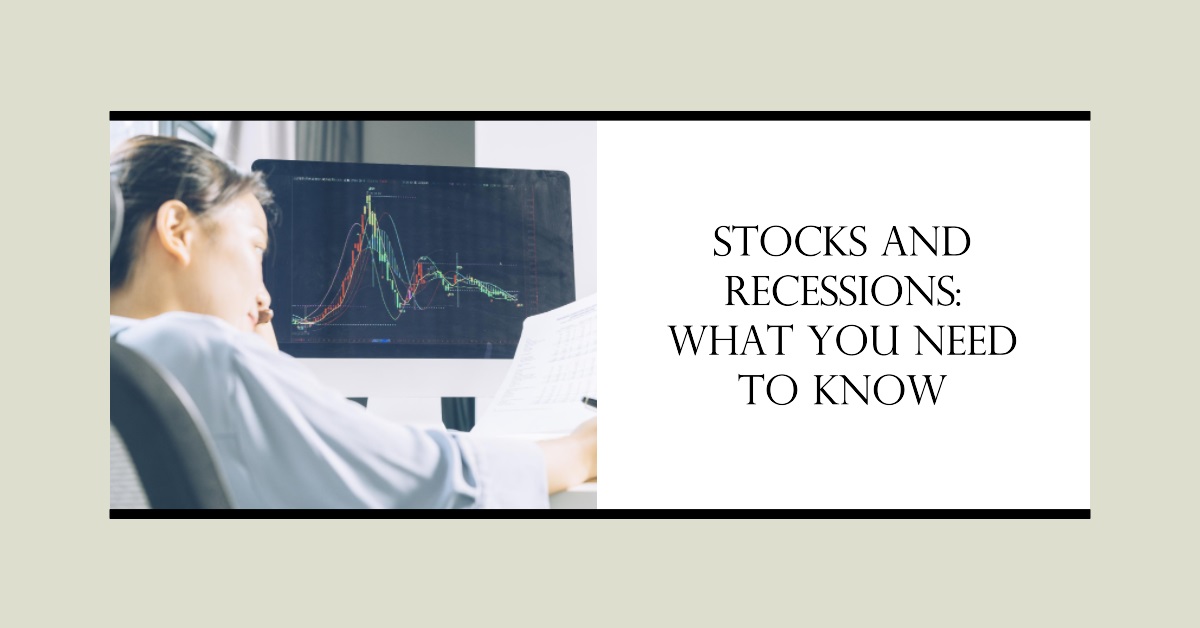Introduction
When the economy enters a recession, many people immediately turn their attention to the stock market. A common question that arises is whether stocks invariably go down during a recession. In this blog post, we will delve into the relationship between stock market performance and economic recessions.
What is a Recession?
Before we discuss the stock market, let’s first define what a recession is.
Definition of a Recession
A recession is generally defined as a period of negative economic growth that lasts for two or more consecutive quarters. During a recession, economic activity contracts, resulting in decreased income, job losses, reduced consumer spending, and business closures.
How Recessions Affect the Stock Market
During a recession, the various sectors of the economy start to slow down. Let’s explore the typical effects of a recession on the stock market.
Reduced Corporate Earnings
In a recession, companies usually report lower revenues and profits due to decreased consumer spending. This reduction in earnings often leads to falling stock prices, as investors may sell their holdings in anticipation of disappointing results.
Lower Dividends and Buybacks
Companies facing lower profits may cut dividends and halt share buyback programs to conserve cash. These actions can make the stocks less attractive to income-focused investors, causing share prices to drop further.
Investor Sentiment
The psychological impact of a recession on investors can be significant. Fear of prolonged economic downturn can lead to a selling frenzy, further driving down stock prices.
Exceptions to the Rule
While stocks often decline during a recession, this isn’t always the case. There are exceptions to the rule, and it is possible for the stock market to decouple from the broader economy.
Defensive Stocks
Some sectors, known as defensive or non-cyclical sectors, tend to be more resistant to economic downturns. These include utilities, healthcare, and consumer staples – industries that provide essential services or products that people need regardless of the economy’s state.
Opportunity for Bargains
Savvy investors with a long-term perspective may view recessions as an opportunity to buy quality stocks at lower prices. This buying activity can sometimes stabilize or even boost the stock market.
Historical Perspective
History shows a mixed picture regarding stock market performance during recessions.
The 2008 Global Financial Crisis
During the 2008 global financial crisis, stock markets around the world plunged. The S&P 500, a major US stock market index, declined by more than 50% from its peak in 2007 to its trough in 2009.
The COVID-19 Recession
The COVID-19 pandemic caused a sharp, but relatively short-lived, stock market crash in early 2020. Despite the economic recession that ensued, the stock market rebounded quickly and strongly, largely due to unprecedented levels of government and central bank support.
Strategies for Investors During a Recession
If you are an investor worried about a potential recession, here are some strategies that may help protect your portfolio.
Diversification
Diversifying your portfolio across different asset classes (stocks, bonds, real estate, etc.) and sectors can help to reduce risk.
Focus on Quality
Invest in companies with strong balance sheets, low debt levels, and a history of weathering economic downturns.
Be Patient
If you have a long-term investment horizon, it may be wise to stay the course rather than selling in a panic.
Conclusion
While stocks often go down during a recession due to reduced corporate earnings, lower dividends, and negative investor sentiment, this is not a universal rule. Defensive stocks may hold up well, and recessions can present buying opportunities for long-term investors.
Investing during a recession requires careful planning and a clear strategy. Diversification and focusing on quality companies can be key tactics for investors looking to navigate these challenging periods.
Remember that every recession and market downturn is different, and past performance does not guarantee future results. Always consider consulting with a financial advisor before making significant changes to your investment strategy during a recession.
FinBrain Technologies
99 Wall St. #2023
New York, NY 10005


Leave a Reply